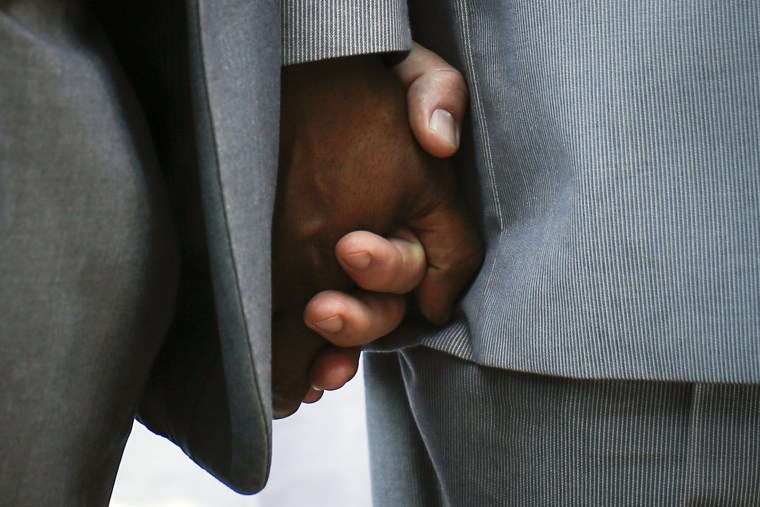Proponents of equal marriage rights have had a lot to celebrate over the last year, with a series of victories nationwide in state and federal district courts. And while those successes matter a great deal, and have advanced the cause of civil rights at a pace few thought possible, the legal fights at the federal appellate level are just as important, if not more so.
It makes rulings like these so striking.
A U.S. appeals court on Thursday struck down gay marriage bans in both Wisconsin and Indiana, adding to a rush of major victories for the marriage equality movement in the last year alone. Now that a three-judge panel in Chicago's 7th Circuit Court of Appeals has ruled unanimously that both Midwestern marriage bans were unconstitutional, a total of 21 states recognize marriage for same-sex couples.
In his ruling, which is available online here (pdf), Judge Richard Posner, a Reagan appointee, wrote. "The discrimination against same-sex couples is irrational, and therefore unconstitutional even if the discrimination is not subjected to heightened scrutiny, which is why we can largely elide the more complex analysis found in more closely balanced equal-protection cases."
The ruling, a key breakthrough for supporters of same-sex marriage, does not come as too big of a surprise. Just last week, the attorneys arguing against marriage equality faced a barrage of very tough questions, which they struggled badly to answer.
Indeed, as Chris Geidner reported, Posner referred to arguments from Indiana Solicitor General Thomas Fisher, whose job it was to defend the anti-gay laws, as "pathetic," "ridiculous," and "absurd."
Naturally, then, the 7th Circuit concluded today, "The challenged laws discriminate against a minority defined by an immutable characteristic, and the only rationale that the states put forth with any conviction -- that same-sex couples and their children don't need marriage because same-sex couples can't produce children, intended or unintended -- is so full of holes that it cannot be taken seriously."
Ouch.
So, what happens now?
Today's ruling will no doubt be appealed. It seems inevitable that the U.S. Supreme Court will eventually have to weigh in on this, though at this point, there is no disagreement between the appellate courts -- often a trigger for action at the high court.
As for what it means for couples in states within the 7th Circuit, the Washington Blade added, "No explicit stay is included in the 30-page decision. Erik Roldan, a Lambda Legal spokesperson, said his organization is still looking into whether that means same-sex couples can immediately begin marrying again in Wisconsin and Indiana."
